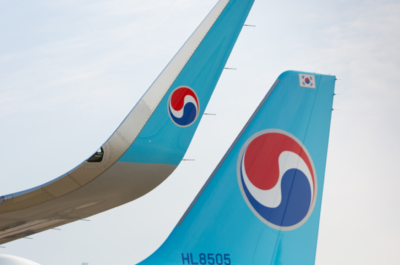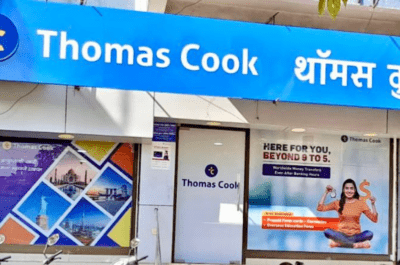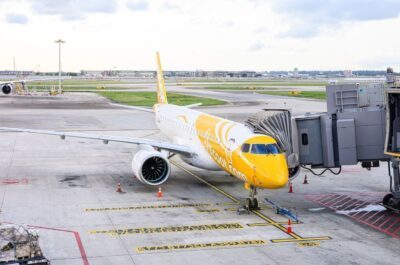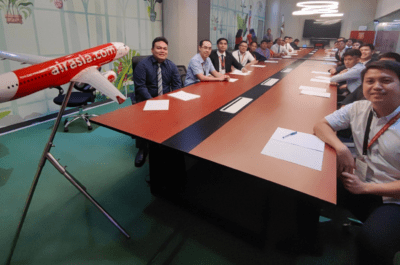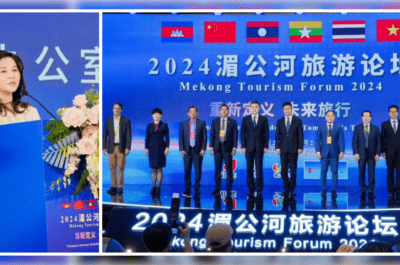…
Can one expect substantial budgets to go to mobile, particularly in local search? Would it be right to say that 2010 will likely turn out to be the year of testing before mobile really takes off in 2011?
Ritesh Gupta writes; “A number of companies are currently in “test” mode and are likely to allocate more of their marketing budget for mobile search ads later this year – so that they can properly assess their strategy for 2011.
It remains a source of much debate and driven a great deal by smart phone adoption and volume of mobile search. Right now, many people are getting both the volume and ROI from traditional web search. Is there enough volume to warrant moving budgets into this channel?”
But there are quite a few who are quite active and bullish about the same at this juncture, too.
“Mobile has been taking off for more than a year already, with several travel companies reporting in the region of 3x annual growth,” says Marko Balabanovic, head – Innovation, lastminute.com.
Balabanovic added, “We recently commissioned the Future of Free Time report which looks at how the ways in which we travel and spend our free time will change over the next 5-20 years. This report confirms to us that mobile booking will become increasingly prevalent, for example one in three hotels bookings in Tokyo are already made on the day of arrival via mobile technology.”
“We expect to see these trends replicated here within the next few years and as revenues grow the budgets will increase but we’re already on the steep growth curve,” said Balabanovic, who is scheduled to speak at the forthcoming two-day Online Marketing and Social Media
Strategies for Travel Summit Europe 2010 (5-6, October) to be held in Prague.
Google is seeing that mobile hotel queries have grown almost 3000% in three short years. It believes that although there are some developing, not quite fully-baked parts of the platform, mobile is a must.
Search pattern
Specialists point out there are quite a few ways in which search differ for mobile phones vis-a-vis PCs. First, the queries are usually shorter on mobile. People tend to put shorter queries while searching on mobile phones and yet expect a high degree of relevancy. Second, the time spent searching per session is usually lesser than that on PCs. Users tend to search on mobiles while on the go, for instance on the way to office, during lunch time, on the way back home from office and late in the night before turning in. Usually the session length for searching tends to be short and sharp rather than prolonged. Third, because you carry the mobile phone with you everywhere, you can do searches based on your location. This adds another dimension of relevancy to your mobile search results.
Balabanovic said, “The main difference we see is that a much larger proportion of searches are for nearby venues and for the same day or a short period ahead.”
He added, “You cannot ignore context with a mobile device: the location, time of day, even the weather. There is also some mobile searching that is directly substituting current PC behaviour (the “sofa surfing”), but the local side is incremental and that’s where there’s a good chance for new services to take off.”
Progress
Google has unveiled a mobile feature that allows advertisers to add a clickable local phone number to mobile paid search ads. In an interview with EyeforTravel, Rob Torres, managing director for Travel, Google, mentioned that this will be a huge opportunity for travel marketers, especially national advertisers who are experimenting with mobile advertising and remain focused on transparent, performance-based solutions.
“We are already seeing great results from marketers who have added a phone number to their mobile ads. Overall marketers are seeing anywhere from 5-30% increase in CTR by adding a phone number to their ad text. In a recent case study, we found that calls from Google Mobile ads were 22% more likely to be relevant than calls from other lead sources and were 31% more likely to result in a booking,” Torres told EyeforTravel’s Ritesh Gupta.
Commenting on the same, Balabanovic said, “If you’re searching on a phone then switching to voice is super convenient, and you also see Google, Apple and others investing in voice UIs and voice search. For simple quick bookings or information requests this has always been a popular channel, the new part is the fluidity switching between web and voice and back. We’ve done some experiments with a university group in Edinburgh on combined voice and mobile web for our fonefood restaurant booking app.”
Targeted advertising
Mobile network operators have also been working on new mobile advertising services that enable brands to engage and interact directly with targeted segments their customer base.
It showcases the potential power of segmentation and trying to give users the information they want their way. It is a benefit to the advertisers as segmentation is proven to drive better engagement and users can benefit from getting relevant messages or services rather than being lumped in with the masses. If effective, it can help a network operator deliver better user experiences and therefore reduce customer churn and build loyalty.
“It will be interesting to see how users feel about direct interaction from a third party advertiser and if users will respond positively to this new way to be “communicated with.” I think it shows how challenging it is to get the user’s attention in this cluttered market and how you need to constantly innovate to deliver relevant and personalised content to stay competitive,” says Meredith Hanrahan, chief marketing officer, Cheapflights Media.
Balabanovic pointed out that the mobile operators are sitting on a scary amount of personal data that can be mined to do better targeting. “It will be interesting to see how much of a privacy backlash this provokes. But from an advertiser’s point of view, it should be possible to be much more relevant,” added Balabanovic.
From a user’s perspective, travel suppliers like InterContinental Hotels Group (IHG) believe that the mobile experience will not replace the deliberate planning process involved with something as important as an annual family holiday. For a full planning process, customers need a large screen with multi-tasking and easy inputs. More importantly, the context of the mobile experience does not lend itself to this type of deliberate planning process. Users need a stable environment with few distractions.
“The mobile experience is designed for a real-world context with lots of distractions. It is designed for somebody making a booking while waiting on a busy street corner or hurrying to figure out if a hotel room is available at the next subway stop. Tasks should be easy to complete and in small enough chunks that users can complete them while dealing with real-world distractions,” says Bill Keen, director of product development, IHG. “One area where mobile can help the deliberate planning process is with social networking. Users can quickly share plans and get feedback from co-travellers who are not collocated for the planning process.”
Online Marketing and Social Media Strategies for Travel Summit Europe 2010
Marko Balabanovic, head – Innovation, lastminute.com is scheduled to speak at the forthcoming two-day Online Marketing and Social Media Strategies for Travel Summit Europe 2010 (5-6, October) to be held in Prague.
Vicky is the co-founder of TravelDailyNews Media Network where she is the Editor-in Chief. She is also responsible for the daily operation and the financial policy. She holds a Bachelor's degree in Tourism Business Administration from the Technical University of Athens and a Master in Business Administration (MBA) from the University of Wales. She has many years of both academic and industrial experience within the travel industry. She has written/edited numerous articles in various tourism magazines.









